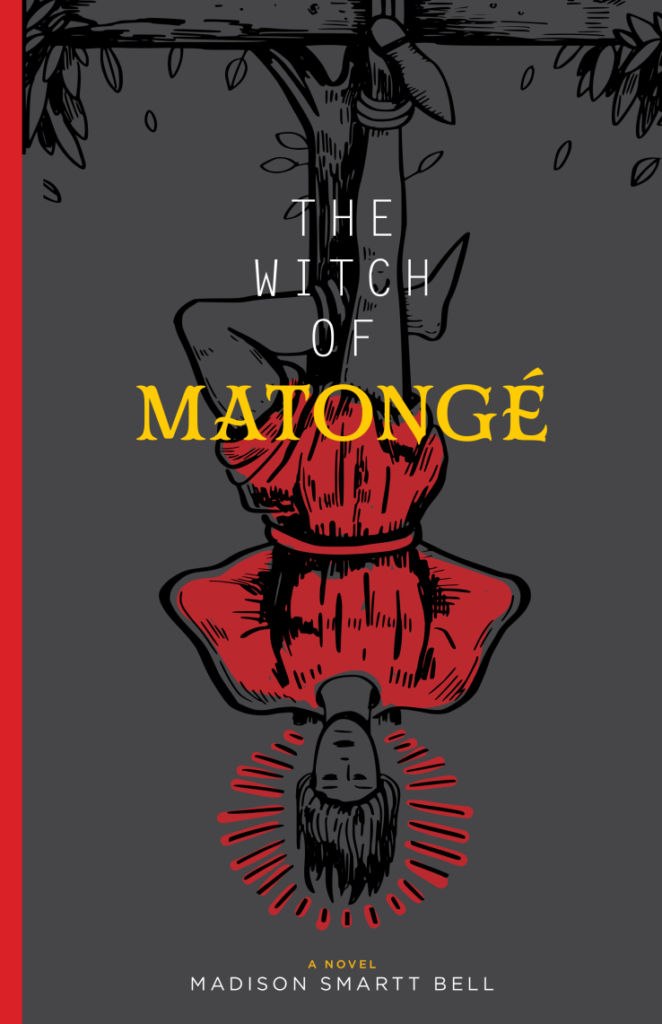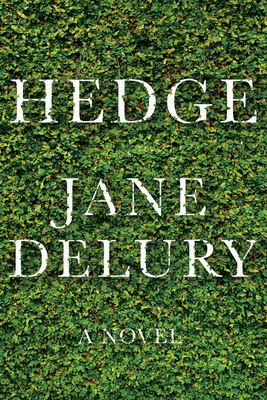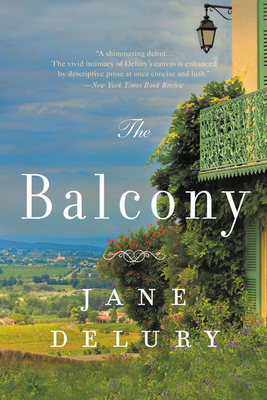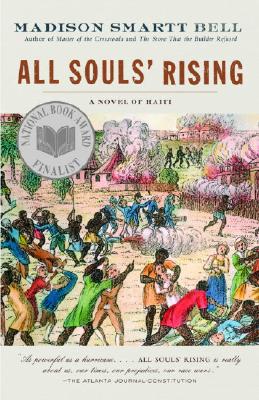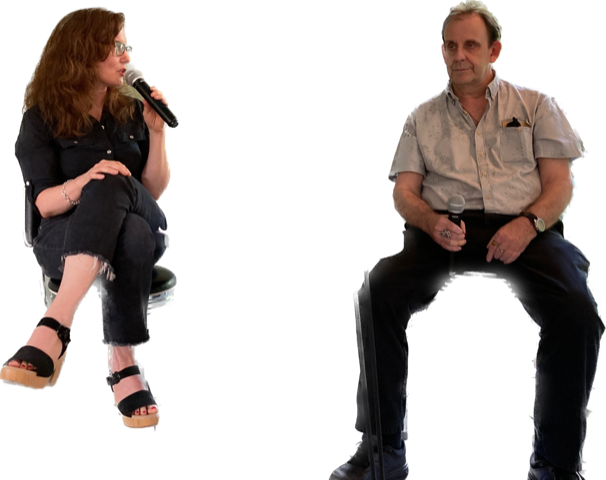
Madison Smartt Bell is the author of twelve novels, including The Washington Square Ensemble (Viking, 1983), Doctor Sleep (Harcourt Brace Jovanovich, 1991), and Soldier’s Joy (Ticknor & Fields, 1989), which received the Lillian Smith Award. His eighth novel, All Souls’ Rising (Pantheon, 1995), won the 1996 Anisfield-Wolf Book Award, and is collected with the second and third books of his Haitian Revolutionary trilogy in a uniform edition from Vintage Contemporaries. In 2020 Bell published Child of Light: A Biography of Robert Stone (Doubleday) and The Eye You See With: Selected Nonfiction of Robert Stone (Ecco). His most recent publication is the novel The Witch of Matongé, published by Concord Free Press in 2022; a limited number of free copies are available at www.concordfreepress.com in exchange for generosity to a charity or someone in need. Born and raised in Tennessee, Bell lived in New York, Haiti, Paris, and London before settling in Baltimore, Maryland. Since 1984 he has taught at Goucher College along with his wife, the poet Elizabeth Spires.
Jane Delury is the author of The Balcony (Little, Brown, 2018), a novel-in-stories that won the Sue Kaufman Prize for First Fiction from the American Academy of Arts and Letters; a second novel, Hedge, will be published by Zibby Books in June 2023. Her short stories have been published in Granta, The Sewanee Review, The Southern Review, The Yale Review, Glimmer Train, Narrative, and other journals. Her awards include a PEN/O. Henry Prize, a Pushcart Special Mention, and grants from the Maryland State Arts Council. Her essays have appeared in Real Simple, LitHub, and Poets & Writers. She holds a BA in English and French literature from the University of California, Santa Cruz, a maîtrise from the University of Grenoble, and an MA from the Johns Hopkins Writing Seminars. A professor at the University of Baltimore, she teaches in the MFA in Creative Writing & Publishing Arts and directs the BA in English. She lives in Baltimore with her daughters and her husband, the fiction writer Don Lee.
Bell and Delury met in Baltimore at the turn of the century, in an abandoned thread mill on the Jones Falls, then in temporary use as a venue for a literary cabaret fundraiser for the Associated Writing Programs. Later, Bell read a couple of the stories eventually incorporated into The Balcony, of which he is an ardent admirer, and Jane used his book Narrative Design in her writing classes. They presently discovered that they were both Francophones and to some extent Francophiles, which is one source from which the following conversation flows.
Madison Smartt Bell: I want to ask, do you sometimes have a thought that presents itself in a language other than your first? Quelque chose qui te saut dans l’esprit comme ça? And then, what is your mother tongue?
My own first language is English, or as the French would say, American, in a Southern variation with slightly different manners of speaking used by the gentry, Black folk, and country white people. And in very early childhood I heard Gullah spoken by Black people in the South Carolina barrier islands, and could speak it a little myself, though presently those people mostly disappeared and the beautiful language with them.
More recently I speak Haitian Kreyol in my sleep (so I’m told) and when feverish (weirdly), Spanish. Waking, my Kreyol is sharply limited, and I have next to no Spanish at all. Still, I think a mother tongue may sometimes be other than one’s first—something one has a sense of coming home to—unexpectedly, perhaps. Et toi?
Jane Delury: My mother tongue (la langue de ma mère—I love literal translations) is English, flavored by the pronunciation tics passed down to my parents by their Irish parents. We lived in a suburb of Sacramento, California, without much linguistic diversity, but we traveled to Europe quite a bit, and my father spoke and wrote in French and German. He hired a French tutor for me when I was seven. My main memory of those lessons is that my tutor served me madeleines and water with grenadine syrup. I’d say I grew up with the flavor of other languages and cultures. Friday nights, while other kids were watching Gremlins with their families, I was watching The Tin Drum and Picnic at Hanging Rock. And during my teenage years, Les Misérables was my favorite novel. I read it in the original in college and felt as if I were discovering it all over again.
MSB: Were you upset by a bad translation?
JD: The one that comes to mind isn’t literary. It was on a menu in Grenoble, France, where I spent my junior year abroad. The dish was “salad de crab avec avocat haché” and the English translation was “crab salad with diced lawyer.”
What’s your number one translation trauma?
MSB: Traduire c’est trahir is another French phrase that doesn’t work very well in translation. Still, I admire translators (and interpreters). I can’t begin to do what they do and have seldom tried. There was one occasion soon after the 2010 earthquake in Haiti, when I was asked by the New York Times to consult on a sampler of literary writing by Haitians or about Haiti, published as “Haiti in Ink and Tears.” It was a twenty-four-hour turnaround, and our daughter, then in high school, stayed up late with me picking clips and translating. I remember she and I were both unhappy with the existing translation of Lyonel Trouillot’s beautiful, poetic, and thus near-impossible-to-translate novel, Rue des Pas Perdus. I think it was Celia who produced a to-us acceptable version of the passage that was used in the piece.
But you were saying!
JD: I ended up spending almost five years in Grenoble after college, and you might say that during the first year or so, I was living in a state of bad translation, as I tried to interpret day-to-day life in a new culture. But a couple years in, a switch flipped. My thoughts came first in French. My dreams were in French. In fact, I didn’t feel at home in the US when I visited summers. Everything was too big and too loud and too colorful.
Have you had that experience of going away and seeing your home differently afterward?
MSB: Most def. I felt it most sharply the first few times I went to Haiti, where a person can spend all day looking for a box of matches, things like that. Back in Baltimore I’d go to the grocery and freeze in front of fifteen different kinds of orange juice. On one such occasion the police came to… assist me. I learned to wait a few days after a return from Haiti before attempting to shop.
JD: Yes, we Americans do like our endless choices.
MSB: Under those circumstances I found them fairly terrifying.
JD: Has that experience of alienation and confusion affected your fiction?
MSB: I’m not sure how much I’ve used that dislocation of place in fiction, although I think you have, in The Balcony. During editorial work on The Witch of Matongé I realized how much that story turns on points of linguistic slash cultural dislocation, which in turn has a bearing on personal identity—thus, in fiction’s craft terms, character.
Certain Paul Bowles stories, “A Distant Episode” in particular, started me thinking that identity is really a linguistic construct, and so more fragile than we are usually inclined to realize. Later experience has reinforced that idea considerably.
I think we are both interested in different kinds of liminal states, when one is neither here nor there, with respect to language, or place, or any number of other conditions. Your story/chapter “Between” seems to get into that.
JD: Agreed. In The Witch of Matongé, you narrate from inside the French language, in the heads of Francophones. I do the same in The Balcony for the stories told from the points of view of French characters, who were all were based on people I knew from my life in France. As I drafted their stories, I was often translating unconsciously from French to English, certainly with the dialogue.
When I collected my stories into a novel-in-stories, I had to unify the voice of the book. I hadn’t lived in France for years and no longer spoke French much at home. The narrator of the novel is American and twenty-first century, even if they are comfortable in the head of a Frenchman in 1911, as is the case in one story/chapter. But I don’t know if I’d feel the narrative authority to write that original story now.
As for “Between,” that story/chapter is told from the perspective of an American expatriate. And yes, absolutely, even in its structure of direct address to two different men (you, the husband, and you, the lover), that story hovers in a liminal space. The husband is American, and the lover is French. I think many of the chapter/stories (another liminal space) in The Balcony explore the contrasting charms of exoticism and of familiarity. The familiar becomes exotic again when you’ve been away from it long enough. You yourself become more exotic in my experience. Who is the Jane Delury in English, in Baltimore, versus the Jane Delury in French, in Grenoble? I’m much older now, granted, but I also think there are also cultural differences. If, as you say, identity is a linguistic construct, how does yours change in French?
MSB: There were attempts to teach me French in grammar school, and more serious and successful ones in high school. I came away with an ability to read nineteenth and up to mid twentieth century French literature with reasonable facility, and to write the language poorly. In college I took French literature courses, but I had no real grasp of the spoken language outside a lecture hall. After college I made a couple of Francophone friends but was too awkward and shy to make much progress.
In 1995 as All Souls’ Rising was coming out, I made my first trip to Haiti and did my first book tour in France. In Haiti I traveled with one of my Francophone friends, which was a huge help. I spoke only French with him, and began to pick up some Kreyol. We did not meet many Haitians who spoke American or English, especially outside the capital. We drove north to Cap Haïtien, and by the time we returned to Port-au-Prince, my Anglophone identity had been pretty well erased. The mental effect was sort of like jet lag but much stronger. It can be refreshing to inhabit a consciousness that doesn’t have many words in it, right?
JD: Yes! And to feel that other identity expand as you adopt expressions that don’t exist in your own language. My favorite is “On n'a pas gardé les moutons ensemble” (we’ve never kept sheep together) when someone is being too familiar.
MSB: Love that.
JD: I’m going to Paris this fall for the first time in years, and I wonder if I’ll find my French double waiting for me on a bench in the Jardin des Tuileries.
MSB: On that first trip to Haiti I had a sort of journalistic cover, writing about a Misik Rasins group, Boukman Eksperyans. During an intermission in one of their concerts I joined a prayer circle with them, and I was dislocated to the point that when I caught sight of my face in a small mirror that had been propped on the wall, my first thought was, Mais c’est un blanc—qu’est-ce qu’il fabrique ici?
In the beginning I was a much nicer person in French, because I wanted so very much to please. In the same period, I realized that if I was ever to gain any sort of fluency, I would have to accept looking like a real buffoon a lot of the time. I don’t think I had what it takes for that part when I was younger.
JD: You fake it well, though. You seem comfortable speaking French. Is that an illusion?
MSB: I am comfortable speaking it, though the truth is je ne sais que jeter des fautes françaises à grande vitesse. That falls a little short of fluency. But I got through the clown phase eventually. I do remember that on my first book tour in France, two women from my publisher listened to me for a bit, looked at each other, and said Oui, c’est un espèce de Créole.
More seriously, I think that so much of a culture is embedded in its language that in adopting the language you take on much of the culture as well—your mind has to bend to it (or break, which does sometimes happen). What you can say controls what you can be, with others, and if you begin to think in the language, it controls what you can say in that interior monologue, which changes who you are with your self. Oh wait—what self?
JD: Yes, and for me, my main connection to French and to France was through my ex-husband’s family. The France I knew well involved soixante-huitards, jazz, and women who smoked pipes. I had a French editor proofread The Balcony, and she came back with notes about the French not doing this or that. In my ex-husband’s family, for instance, the kids call the parents by their first names, instead of “Maman” et “Papa.” Not typical, but true of the French people I knew best.
MSB: Right. Not all codes are linguistic codes. And the French are not entirely a monolith either, despite the best efforts of l’Académie Française and l’Abbé Gregoire.
Losing one’s sense of self between languages can be a trippy sort of thing till you get used to it. When it first happened, I remembered reading Kipling’s Kim a few times as a boy. I reread it recently and it holds up much better than I expected-- it may be the first English novel entirely about code-switching. Practically the only thing I remembered about it was a moment where Kim thinks in English (actually there are several instances of that), and the reader sees it as part of the process of his becoming a member of the British Raj—a Sahib, as he would put it. I had recently read Kim when as a boy I noticed myself having some rudimentary thoughts in French, and I thought of that scene in the novel then, and many times after.
From 1995 to around 2007, I went to France for some book junket almost every year and went to Haiti a couple of times a year, researching later volumes of the trilogy and a biography of Toussaint Louverture I wrote after. I carried a notebook, and at the beginning of my stay, I would write proper notes in American, later in kind of funky French, then Kreyol, and finally there would be no more words, only diagrams. My Kreyol is still pretty limited so I can’t think very complicated thoughts in that language, which reminds me that the linguistic construction of self is not one’s whole being. I think it is mainly the ego that’s wont to seize language as an instrument of domination and control.
JD: Do you ever wish you could be creatively inspired by the Towson shopping mall or a McDonald’s off I-83? I do. My writing seems to feed off other places, other times. I try to write what I know, but I get quickly bored.
MSB: Well, there’s this Burger King in the northernmost service area of the Garden State Parkway, on the way to the Tappan Zee bridge. When I first stopped there, it seemed that everyone working in the place was speaking Haitian Kreyol. I assumed that was delusional on my part, that I’d slipped into another fugue state, like in front of all that orange juice. I do sometimes have auditory hallucinations, though not so elaborate, more like roosters that aren’t really there, things like that.
So I slunk away without saying anything, but the next year, same place, same phenomenon—I addressed the burger workers a few words in Kreyol and got slightly startled replies in the same language… so yeah, it turned to be part of ordinary reality.
There are writers who specialize in rhetorical savorings of the banal, but I don’t think you and I are them.
JD: You’ve made me think of something else. When I lived in France, I taught English, British English. My students knew apartments as flats and eggplants as aubergines, and to make life easy for them, I adopted their English. My native tongue morphed in those years teaching English. I stopped spelling like an American. Humor was humour. Color was colour. That lingered for years after I’d moved back here. In my next novel, Hedge, the protagonist is a garden historian who trained in England. Now she’s back in the States, but she still explores otherness by looking back in time. That’s how I most relate to her.
What about the past for you? Your novel is so now, but it also feels haunted.
MSB: You must know how dangerous it is to ask a Southerner about the past. I’m a white Southerner, so there are layers. Stuff that really happened that we remember and the Yankees don’t. Delusions we fed ourselves, for generations, as truths about the past. Stuff that we completely repressed for generations, much of which is returning to consciousness only now. So, you know, we can go on about it all for a very long time.
The first literary fiction I read was from the Southern Renascence: Allen Tate, Andrew Lytle, Flannery O’Connor, Caroline Gordon, Eudora Welty, Robert Penn Warren, of course Faulkner. This work was entirely by white folks for white folks, although I have always thought that Black writers of the period, like James Baldwin and Ernest Gaines, ought to be included.
Mais pour revenir à nos moutons… The backstory of the Witch has some specialized elements. A conceit is that the American was with one of the Special Forces A Teams that operated in the North of Haiti during the UN/American “intervasion” of the mid-1990s, hence the knowledge he has of the language and the culture. He also had a Haitian wife and a child with her (nobody in the story knows about them except the American’s erstwhile Special Forces teammate who comes in briefly at the end) who both died in the cholera epidemic following the 2010 earthquake that knocked down much of Port-au-Prince. The American’s familiarity with Haiti and his ability to speak some Kreyol as well as French gives him a rapport with the Haitian aristocrat Jean-Robert, but there’s an edge there because the American is not only a blan but a blan militaire Americain, which evokes the first American occupation of Haiti beginning back in the First World War, when, not to put too fine a point on it, the Americans usurped Haiti’s sovereignty, introduced Jim Crow social practices, and recreated a form of slavery known as the corvée.
Then there is the witch herself, and her descendants, who are Roma people, who have a long and difficult history which I learned something about through research and stories people told me.
Then there’s Abu, the fatherless Muslim youth who vacillates between the benign (and majoritarian) versions of Islam represented in the story by the Sufi sheik and the violent jihadism of Daech and Al Quaeda, represented by Farouk.
Through a certain lens, my writing those last characters is an act of expropriation that these days would make me eligible to be burned at the stake. In reply to that point I will quote Charles Johnson, possibly the last real humanist on the planet, who said from a Goucher podium a couple of years back: “If we’re going to have a diverse literature, we have to learn to write the Other.”
But, to return to our metaphorical sheep, my raising taught me that the past can sometimes be experienced as a sort of encysted wound. That’s true for the American in his personal past, and for Jean-Robert in the relatively recent history of Haiti and Haitians, and in a deeper way for descendants of the long wanderjahr of the Roma people, and the history of clashes between the Islamic and Christian worlds, and in the descendance of African slavery wherever that took place, and so on.
I’d like for you talk about the ways you deal with deep time in fiction, not only in Hedge, where your heroine shows up with her archeological tools in hand (though layers of time in that book are explored with several other instruments as well) and also in The Balcony, where the depth of the historical dimension comes close to making the place itself a protagonist.
JD: As I mentioned, I grew up on the edge of Sacramento, near the foothills of the Gold Country. The remnants of the nineteenth century were being scraped away during my childhood: subdivisions replacing orchards, shopping malls on the edge of dusty mining towns. That landscape, plus having a father older than all the other fathers and who’d wished to be a historian, colored my view of the world. I played pioneers way past a respectable age, dressing up in petticoats, hunting the cat, rafting over the pool to the other side. I was nostalgic at eight. I grieved the loss of those hills. Strip malls were antagonistic.
MSB: That all sounds so much like the childhood of Joan Didion, as rendered in Tracy Daughtery’s wonderful biography.
JD: I love Didion’s work. But she’s less of a romantic than I am. Actually, that’s one of the things I love about her work. In The Balcony, I faced a double risk of romanticization: writing about the past and writing as an expatriate. Plus, I’m drawn to dramatic plotlines. “Au Pair” and “Plunder” both take potentially melodramatic subjects—a love affair, a death—and, I hope, illuminate them with unfiltered lights.
MSB: I would definitely give you that.
JD: The protagonist in “Au Pair” goes to France starry-eyed, and she grows up over the course of the story. This affects her view of the landscape itself. She also moves from country to the city. My fiction favors the country. I’m most creatively inspired with a view of a mountain or ocean. And, come to think of it, historic places often preserve original landscapes, so that’s another part of the draw in writing about them. As I child, I loved the image of covered wagons rolling over hills, but I loved the hills themselves as well: the endlessness, openness of space. Going back in time is also going back in landscape.
In Hedge, my protagonist uncovers buried gardens, testing the soil to find chemical traces of long-dead plants. I learned about this kind of work at Monticello, the perfect place to think about the problem of romanticizing history. In the end, Hedge didn’t take place at Monticello, but I learned so much there, especially from the archeological work being done on the mountain, away from [ZB1] Thomas Jefferson’s house. Maud restores gardens in the Hudson Valley and San Francisco’s Presidio, and as she does so, she struggles to be clear eyed in beauty, to be more Didion than Hugo in the way she treats history.
MSB: Hmmm. You think we can actually do that? Seems tricky, particularly with the past, which we have to regard through our own eyes, not the eyes of the people who lived in it. That’s a very different filter factor, I believe. How fully at home can a twenty-first-century American be in the mind of a Frenchman in 1911? There’s some interesting friction on that edge.
JD: We can’t. But I wish I could. The heat of that friction creates stories for me.
MSB: Lately I’ve been thinking that history is just a story after all. Ideally, it’s a story composed of facts, but nobody tries to use all the facts, because even if you could do that, what it would yield is what Hannah Arendt called “an unbearable sequence of sheer happenings.” So any coherent version of history leaves most of those happenings out, otherwise it would be shapeless. That’s true of the conventional history of the U.S. which I imagine you and I both received in high school, and it’s true of Howard Zinn’s correction of that conventional history… and on we go.
JD: How the Word Is Passed by Clint Smith is wonderful on this topic.
MSB: I think you worry about the risks of the romantic gaze more than I do. I think I never think about that, which probably means I’m unconsciously wallowing in it all the time. Maybe we are guilty of exoticism of a sort. But I do think that unfamiliar circumstances throw the self into a special sort of relief, and there’s an edge that can make a story interesting.
Certainly The Witch of Matongé is meant, in part, as a kiss blown to Paris: Ville Lumière! Ville de l’amour! Have I just romanticized the place one more time? It’s tempered by the American’s having a sort of fisheye on a lot of that stuff, like those troth-plighting padlocks on le Pont des Arts. Then again, he’s not entirely immune, and the book wouldn’t be much fun if he were.
JD: And it is the Ville Lumière!The Ville de l’amour! As well as all the rest. I plan to see the sewers of Paris on my upcoming trip. I’ve always wanted to go and never have. Apparently, I’m still haunted by Les Misérables, all these years later. I’ll try to remind myself that Jean Valjean was running through shit.
MSB: I think the Disneyfication probably turned that into chocolate, right? Me, I’ve only been in the catacombs. Bones are remarkably clean.
Rain Taxi Online Edition Winter 2022-2023 | © Rain Taxi, Inc. 2023

